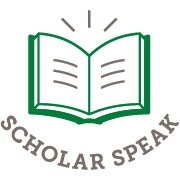Written by: Madan Mohan

Here are few tips that might help you understand the interview process a little better.
While everyone is excited about graduating, our job is not done quite yet, but instead takes us to the next important aspect of finding a job that matches our skill sets. This can be a daunting task given the various job titles and detailed job descriptions in academic libraries. There are many steps one needs to go through before being offered a position. The hiring process for an academic job can be time-consuming and can vary from one institution to another. Librarian positions can either be tenure-track or non-tenure-track faculty, academic appointees, administrative staff, or professional staff positions, stated by ACRL Guidelines for Recruiting Academic Librarians (2017).
Finding an academic librarian job generally involves searching for a suitable posting online, applying, and going through two rounds of interviews with a search committee and others who work at the library. ACRL Standards, Guidelines, and Framework can be a helpful resource that can help you become familiar with the search committee’s specific processes and roles. They explain how various institutions follow these guidelines during the interview process and several other interview procedures, from telephone to on-site campus interviews. These guidelines can help you understand how candidates are evaluated. How is a recommendation made for hiring a candidate by the search committees, hiring authority, and senior administrators? This varies from one institution to another.
After finding job postings you are interested in, apply only to the positions for which you meet the required qualifications (Davis, 2015, p. 138). Applying for a position requires three essential components: a resume or curriculum vitae, a cover letter, and a minimum of three references. A few excellent places to start looking for job postings online are ALA JobList, HigherEdJobs, LibGig Jobs, etc. Being an active LinkedIn user can also help you network and connect with librarians and professionals in the academic field.
Some common steps involved when applying:
- Use a professional email address that includes your full name when applying for positions online.
- Proofread your resume and cover letter and make sure all attached documents have a standard naming convention. Asking a friend to proofread your resume and cover letter can be helpful.
- Practice interviewing with some of the common questions like a.) Tell me something about yourself, strengths, weaknesses, b.) Explain how you have the required qualifications and meet all skills and experience mentioned in the job description. In addition to your required qualifications explain how you meet any preferred or desired qualifications listed in the posting.
- Always prepare a few questions specific to the job posting to ask the search committee at the end of the interview.
- Send a thank you letter expressing your gratitude by email after the interview.
The interview process typically consists of two phases, a phone or Zoom interview and an on-site interview. These days, video interviews are becoming more common than phone interviews, though practice varies by institution. Professional dress code applies for both virtual and on-site interviews. These are some of the expected norms when applying for an academic position. In general, up to ten qualified candidates are interviewed by phone or Zoom, and the committee will then select one to five candidates for an on-site interview (Davis, 2015, p. 139). Also, have a backup plan if you have any technical difficulties connecting over the phone or virtually. Emailing the search committee or the hiring administrator about the technical difficulties can help them understand your preparedness and professionalism.
As stated by Davis, on-site interviews for academic libraries can typically last for a full day or longer. Prior to the on-site interview, the search committee will send an information packet about the position and the library. This packet will have the contact person with whom you will coordinate during your interview. Presentations are another important aspect and a requirement for most academic library on-site interviews (Davis, 2015 p.140 – 141).
It is a standard process to provide references when applying for a job posting. Most importantly, check with your references in advance that they are willing to be your reference and give them a heads-up if you are called for an interview by sharing the job posting, resume, and cover letter that you submitted. This way, when contacted, your references can highlight the skills that best fit the job you are applying for.
During our GSA meeting with Kevin Hawkins, the UNT Libraries’ Assistant Dean for Scholarly Communication, he shared many valuable tips from resumes to the hiring process, and I want to share few things I found particularly helpful:
- Highlighting the required qualifications in your resume/CV is essential, and telling a story about meeting those required and desired qualifications in a cover letter can help the search committee select candidates for the next stage.
- Some libraries, such as UNT, evaluate candidates against the job qualification based on a point-based rubric system.
- Addressing Diversity, Equity, & Inclusion and describing your personal experience working with diverse groups can be very helpful when applying for an academic or a teaching position.
- Applications are reviewed manually by members of the search committee, though in some cases an HR employee will do a first pass to remove any obviously unqualified candidates.
Having attended many workshops, I have often heard that resumes need to have specific keywords mentioned in the job posting to pass the automated system that reviews resumes and cover letters. However, reviewing applications through an automated system is common in private sector companies but not in academic settings (Hawkins, 2021). This is especially comforting to know that our effort and time invested in applying for academic positions hasn’t gone unnoticed because of an automated system.
Our subject librarian Greg Hardin has valuable Career Development resources, including guides that help prepare resumes and cover letters. Also, several links to job sites, professional organizations, and more can be found on UNT’s Information Science: Career Resources guides page.
We hope these tips helped you understand the process of applying for academic librarian jobs a little better. Feel free to share comments about your experience with these resources or contact Ask Us for any research assistance!

References
Davis, A. R. (2015). Searching for an Academic Librarian Job: Techniques to Maximize Success. Pennsylvania Libraries, 3(2), 136-143. http://dx.doi.org/10.5195/palrap.2015.107
Guidelines for recruiting academic librarians. (2017, June 29). American Library Association. http://www.ala.org/acrl/standards/recruitingguide
Hawkins, K. (2021, March 19). GSA meeting. University of North Texas.



Jhansi Gandla
This article helps in understanding the entire procedure of interview and how to get, well prepared for the interview.
I thank the writer you made every point to the mark and crispy.